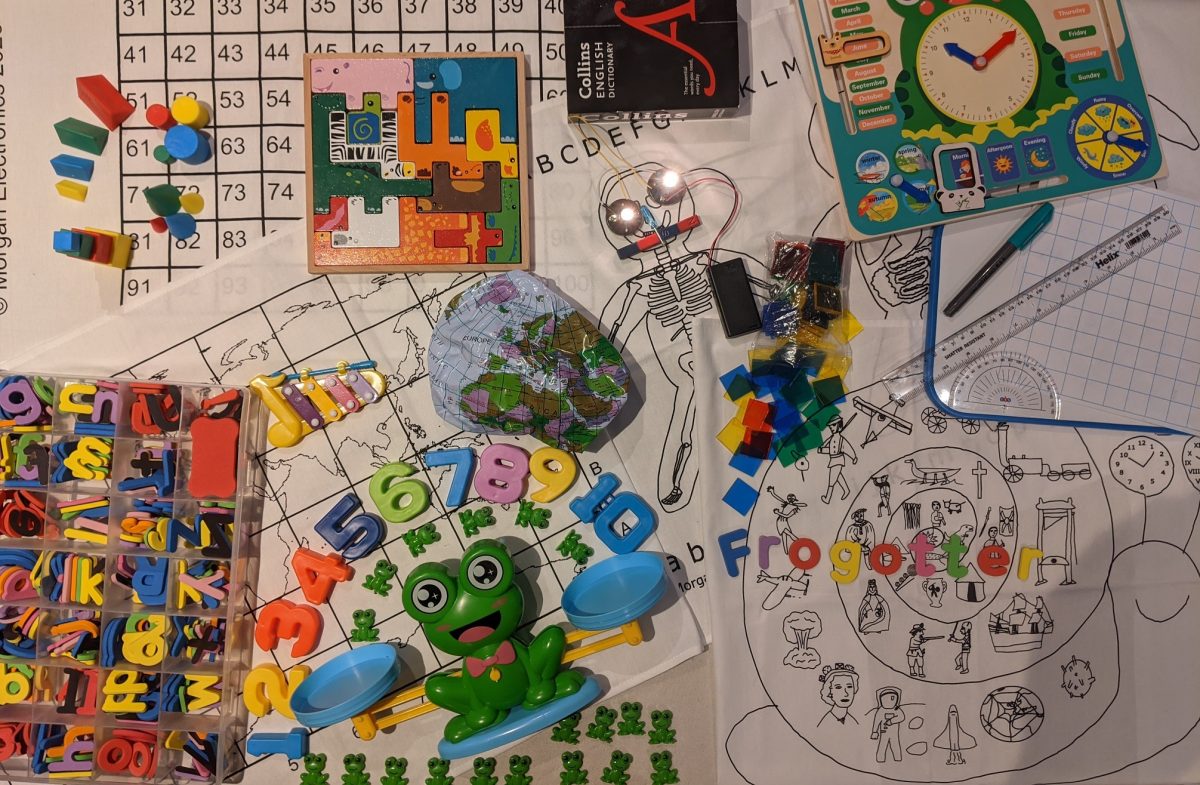As the UK returns to Lockdown, I know many parents are frustrated and concerned about returning to Lockdown Schooling. And, many teachers and schools are frustrated and concerned at having to provide distance learning with no time to prepare.
Online learning had its place, but I think we all agree that it’s not a good idea to sit children in front of a computer all day long!
Hands on learning allows children to explore ideas and to learn through play. Gameschooling makes learning fun and reduces the stress caused in many households when parents are forced to adopt the role of Teacher.
The Frogotter Box is an all inclusive curriculum linked set of resources, ready to use with no preparation at all.
No Preparation Required
Because it requires no preparation, parents and carers don’t need to spend any time searching the internet for ideas, gathering materials, or printing worksheets. You can just open the box and begin. It’s the most efficient use of what little time you can make available to teach – especially handy if you’re combining Home Schooling with Working From Home!
National Curriculum Linked
Because it’s curriculum linked, you can rest assured that it will build on what your children have learnt at school – increasing their confidence. And it will prepare them for returning to school when all this is over. This may be particularly helpful for parents of Year Six children who are concerned about their children being ready to start Secondary School in September.
Gameschooling
Because it’s hands-on and game-based, it will follow naturally from your usual relationship of chatting and playing together. You don’t need to be a teacher to play educational games together. There is a lot of turn taking and collaboration in the Frogotter Activities. This will reduce conflict and pressure and help to make this time positive.
Fun Resources
All the equipment has been chosen to maximize fun and engagement. The wooden animals, magnetic letters and counters are all extremely appealing to children, encouraging them to join in and enjoy learning.
Short Activities
None of the individual activities take very long to complete. Obviously, if children are enjoying themselves they may play for an extended period. But, the activities are designed to allow you to use any ten minutes to make progress. This is really ideal for busy families and for children with short attention spans. You can get a preview of the activities by visiting our Youtube Channel.
Great Value
We’re very sympathetic to parents who need to get things sorted right now. The kit can be reused for siblings, which makes it fantastic value for money. All the equipment can be used time and again. Once your children do return to school, the kit will be brilliant to help with homework, and with reinforcing any concepts that your child needs a bit of extra practice with. We’re offering a special lockdown sale price of £99.60 including postage within the UK. We’ll keep this price until children can return to school.
Personal Support
We’re a home educating family, with four children of our own. We’ve been educating our children for years. We’re available on twitter, instagram and by email to help you with any queries, so you don’t need to feel like you’re on your own!












